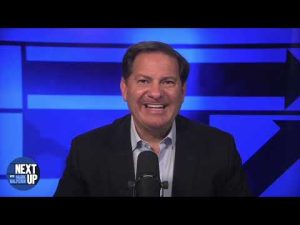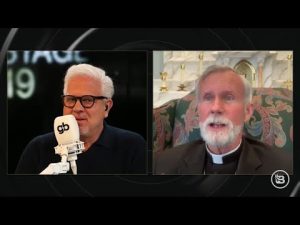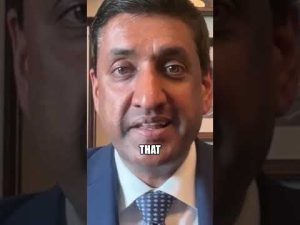**Trump’s Tax Vision: A Bold Proposal for Prosperity**
In recent discussions on economic policy, the spotlight has landed firmly on the potential for a significant overhaul of the American tax system. Steven Moore, a co-founder of the Committee to Unleash Prosperity, has been vocal about his thoughts on tariffs and taxes, and it seems he is proposing a rather intriguing direction that some might find revolutionary. The idea of implementing a 15% flat tax across the board—corporate, individual, capital gains, and even a tariff on goods imported from countries like China—is turning heads and sparking debates among conservatives.
To break it down, let’s imagine a world where individuals and businesses only owe a straightforward 15% on their income. Right now, tax rates can be as high as 40% for the wealthiest, which can hit hard in the wallet. For many Americans, the notion of slashing tax rates to a mere 15% brings a ray of hope, much like a bright sun after a long and dreary rain. The aim is to compel businesses to set up shop in the States, which could lead to job creation and a fresher economy. Moore’s idea would not merely lower taxes; it would fundamentally reshape the entire tax landscape.
Moore has also emphasized the importance of American manufacturing, suggesting that a tariff could be imposed on imported products to encourage consumers to buy more domestic goods. The concept is that if Americans are charged a little more for items made overseas, they might just consider purchasing that American-made alternative instead. In essence, it’s about tilting the scales back in favor of domestic production—a patriotic purchasing strategy, if you will. It’s a curious dance between economics and nationalism that stirs up strong sentiments.
However, while lowering taxes and enacting tariffs sounds appealing, some might wonder about the challenges of implementation. Critics point out that tariffs are essentially just another form of taxation, and additional costs could burden consumers, especially if their favorite imports become pricier. But here lies the silver lining; if domestic products can be positioned as more affordable or preferable, there’s potential for consumers to cheer for things made with American pride.
That’s not all; the proposed 15% tax setup could lead to a more streamlined IRS. Imagine a world without the complexities of tax returns and endless forms—a place where citizens could spend their precious hours enjoying life instead of wrestling with bureaucratic red tape. Moore’s vision presents a fresh take on how America’s taxpayers can reclaim their time and resources, potentially winning back more engagement within their communities, and dare we say, even a bit of happiness?
As discussions continue to unfold, this ambition to implement the 15-15-15 plan is met with a mix of eagerness and skepticism. It reflects a longing for a simpler, more prosperous economic reality. Moore’s ideas may indeed be a gamble, but in the ever-evolving political landscape, they ignite conversations about fiscal responsibility, consumer choice, and the bright future of American entrepreneurship. If the nation can embrace such transformative tax reform, prosperity might just be around the corner—if only everyone could agree on what street that corner is on!







